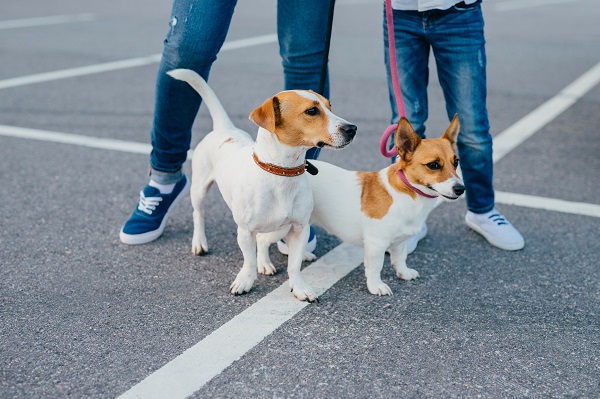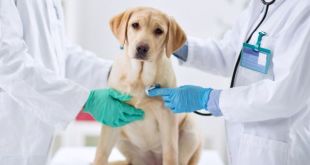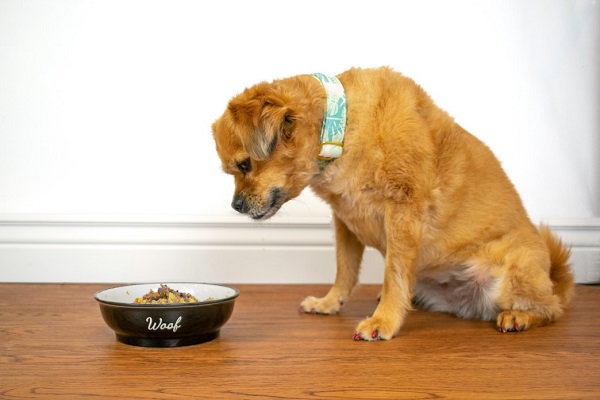Constipation is a common health issue in dogs and refers to the inability to pass a normal stool regularly. It can happen for different reasons and usually can be easily fixed, but some dogs may experience chronic constipation. It can lead to obstipation, where the stool becomes drier and more complex.
Constipation can be discomfiting for your dog and downright scary for you as an owner. Please keep reading to learn how to help your constipated dog and know when it’s time to call the vet.
Some of the most common causes of constipation in dogs include:
- Fluid (dehydration) and electrolyte imbalances
- Abnormalities in the diet – lack of dietary fiber, pica sudden change in diet, and specific sources of dietary calcium.
- Senior dogs seem more prone to constipation than their younger counterparts.
- Tumors in the digestive tract can block the GI passage.
- A lack of exercise or an inactive lifestyle tends to slow down fecal transit.
- Problems affecting the anal gland, such as impaction.
- Growth of a male dog’s prostate gland
- Medications – Such as diuretics, antihistamines, specific cancer drugs, and antacids
- Hypothyroidism and specific types of metabolic disorders
- Stress
- Disorders of the central nervous system
- Joint and bone issues, such as arthritis
- Surgery or post-surgical cases
How to relieve constipation in dogs?
Once you have brought your dog to the clinic, your vet will perform a complete physical exam. A medical history will also be acquired, so be prepared to answer queries about your dog’s diet, activity, signs, etc. In addition, a rectal exam may rule out the narrowing of the rectum or the anal opening.
Abdominal x-rays can assist in determining if there is an obstruction along the GI tract and the extent of constipation. A biopsy may be suggested if there is a mass in the rectum. Blood tests and urinalysis can help decide if dehydration or infection is present.
Symptoms of Constipation in Dogs
Most dogs defecate at least once a day. The frequency of bowel movements can be affected by the number of meals they have per day and how many meals they consume. A dog is said to be constipated if the following signs are exhibited:
- Shows several tries to pass feces unsuccessfully
- Scooting or squatting repeatedly
- Restless and tends to engage in spinning motions excessively
- Crying out while trying to defecate
- Vomiting
- Decreased appetite
- May void small amounts of wastes that may have some water or mucus
- Weight loss
- Assume a different pose indicating the abdominal pain and discomfort that they are experiencing
- May cry or growl if you press his lower back or stomach
Home Remedies for Constipation in Dogs
Below are a few at-home remedies that you can try to help ease your dog’s constipation. It’s essential to note that if your dog has been constipated for two days or more, it’s time to seek veterinary service.
Exercise and support
A deficiency of exercise can be a significant contributing cause of constipation in dogs because exercise is needed for intestinal movement and digestion. Take your dog for long and regular walks in its favorite places to poop. It may take several tries, but the more you improve his physical activity, the more you increase intestinal activity.
Moreover, if your dog is getting older, it might be challenging for him to support himself in a proper defecting outlook. Try using a special harness to help hold up some of his body weight when he starts to posture.
Add canned pumpkin
Canned pumpkin is an excellent source of fiber and can be safely added to your dog’s food to help with constipation. Add 1-4 tablespoons of pumpkin per meal to relieve mild constipation.
The amount of pumpkin you add must be based on the size of your dog: 1 tablespoon for small breeds, up to 4 tablespoons for large and giant breeds. It’s essential to use either plain canned or pumpkin that you have cooked yourself, not pumpkin pie mix.
Increase water intake
Dehydration is also a significant cause of constipation. You can find when your dog is dehydrated by touching its gums or the inside of its lips. If this feels dry, you should encourage your dog to drink water. Another good way to consider hydration is to pick up the extra skin on the top of his neck. If its skin doesn’t quickly snap back into place, your dog may be dehydrated. Try using separate bowls or offering the water at different temperatures to see if this helps attract your dog to drink.
Manually remove hair
Dogs who shed a lot and have long hair may have matted hair blocking the rectum and not allowing for the extract of feces. If this is the case for your dog, you can clean him to ease any stool that may be caught in the hair around his rectum. Moreover, you can use electric clippers to remove the matted hair. Dog groomers or veterinarians can help you with constipation if you’re not comfortable doing this at home.
Constipation in Pups
Constipation in pups is not common, so a straining puppy will likely have diarrhea. Newborn puppies must be manually encouraged by their mother or pet parent to urinate and defecate daily. It can slow down the food if they have structural abnormalities in or around the intestinal tract from abnormal growth. Large portions of intestinal parasites can block a puppy’s intestines and any material they may ingest. Pups are far more sensitive to dehydration and the absence of food than adult dogs, so their condition can languish quickly.
If a pup has any of the following signs, contact your veterinarian instantly:
- Is not eating
- Has not passed any stool in 24 hours
- Is retching or vomiting
- He appears to be in pain
- Is lethargic
- Has a swollen belly
For most dogs, constipation will be a rare problem, kept under control through a well-balanced diet, regular exercise, and access to fresh water.
 DogExpress
DogExpress



















 in Chandigarh, India.
in Chandigarh, India. 

